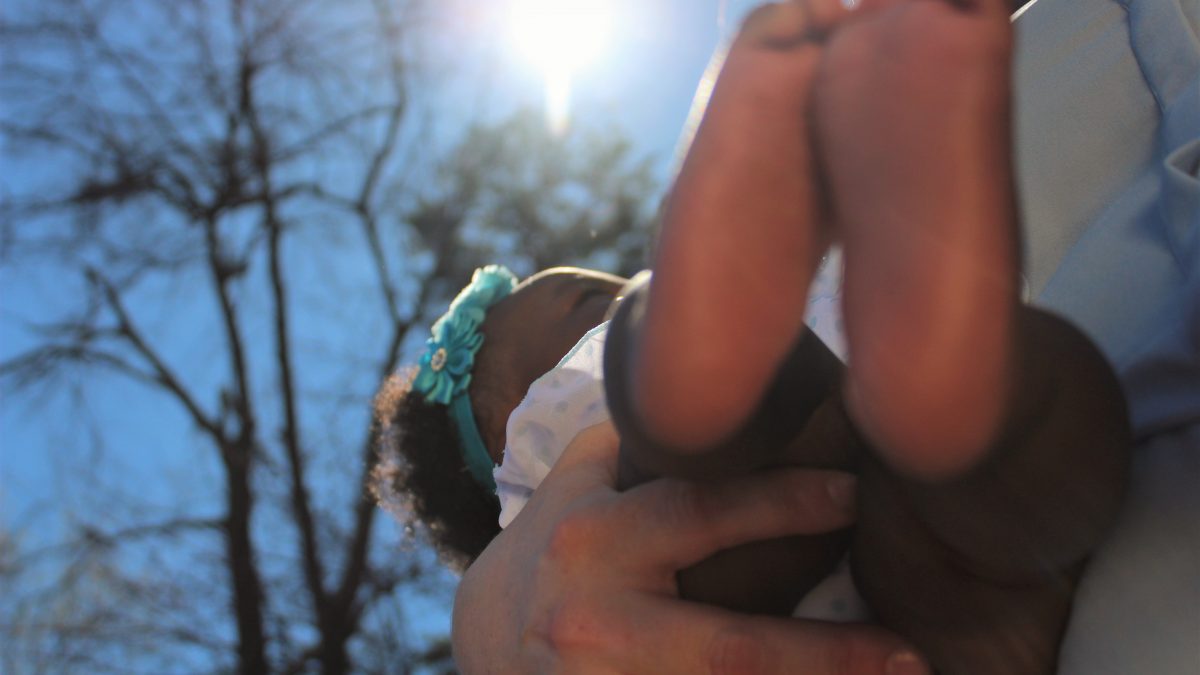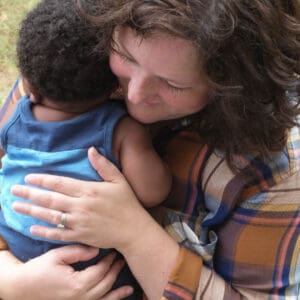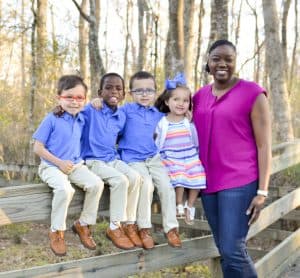
The idea of fostering can be scary, like any new adventure in life. It takes courage, which is defined as doing something even though you are fearful of it. Don’t let your hesitation stop you! Read on to learn about how other foster parents overcame their fears. Let their courage be contagious!

Leland and Sarah started fostering in 2017
Do We Have the Capacity?
Leland’s biggest hesitation was simply whether or not his family could handle all the demands of fostering. Their free time was already so limited, and his wife Sarah was continuing her nursing education at the time. Sarah admits that fostering is “an opportunity to live radically, serving in an area where I have no expertise.” Instead of using these hesitations as excuses, they chose to fulfill God’s desire to “seek justice, love mercy, and walk humbly.”
Kaley’s biggest hesitation was wondering, “Can we even do this? Do we have what it takes? I didn’t know what it would entail or if we would be good parents and partners. I thought of foster parents as super heroes. And in some ways all parents, all people who love and care for kids well, are heroes. But I also realize, now that we are in the thick of it, that foster parents are regular people who decided to say yes to meet a need. It’s still hard, but you stick with it because it matters.”

Laurie and Phillip and their 5 biological kids foster through SC DSS.
What About My Children?
Having already had biological children, one of the things that most concerned Laurie and her husband was how saying goodbye would affect the young children they brought with them on this journey. Laurie said, “Choosing this for yourself as an adult is one thing, but it’s a really tough thing to choose for your children.” But, after some really difficult goodbyes, they feel that it has only proved to better them all.

Aundrea has fostered children since 2006 as a single parent.
Can I Do This Alone?
As a single parent, was Aundrea hesitant to become licensed to foster? Of course, but that didn’t stop her! “I overcame my fear by reminding myself that it’s about the children in crisis, not about me,” says Aundrea, showing her selfless nature.
Also a single parent, Melissa had concerns during the initial phase of the licensing process. “My biggest hesitation to becoming a foster parent was being single. I didn’t know how I’d manage on my own, with a demanding full-time job, and balancing that with a child or children who would have lots of appointments and need childcare.” However, Melissa knew she needed to work through that concern because her vision was clear. “There were kids who needed homes, and I had room for them. My family has been very supportive of me fostering, and before I signed the application, they agreed wholeheartedly to be my village.”

Sarah’s family has fostered since 2018.
What Will Fostering Look Like for Our Family?
“Uncertainty was just something we had accepted would be part of parenthood, especially foster parenthood,” says Sarah. “But something changes in your heart when uncertainty has a name, a face, and little arms that wrap themselves around you.”
Kendal faced unique challenges because she worked at SC’s Department of Social Services (DSS). “Because I knew the struggles of children from hard places, we feared how fostering could affect our own children,” Kendal said. “The challenges of working at DSS while fostering never got easier, and ultimately I took a leap of faith that this was our calling as a family, to serve a greater purpose. While I am always conscientious of my children’s needs and have to establish boundaries for their sake, after 10 years of fostering they have learned to become adaptable and adjust as we adjust, for the most part.”

Kimberly’s family has fostered since 2016.
How Can I Say Goodbye to Children I Love?
Christy’s concern was different. Her and her husband usually found themselves uncomfortable with new people and new circumstances. “We went into fostering knowing that the possibility of children leaving was real, and we knew that would be hard,” she said. “We knew that we would be hurt when children left. We overcome these fears with logic. These children need a family. They need stability and direction and discipline and fun. We have the ability and capacity to offer this. And if the only reason to not foster is that it makes us uncomfortable or it is inconvenient, I have come to the conclusion that those are very bad reasons to resist something that affects another life so profoundly. So we overcame the hesitations by recognizing that our hesitations were based in emotion. When faced with injustice, it is our job to act, to do, to protest, to not give up. As the grownups, we need to get it together. There are lives at stake, and to ignore this is the worst kind of indifference.”
Like Christy and most new foster parents, Kimberly and Jennifer worried about getting too attached. But when one child leaves, the phone always rings with another child who needs a family’s love and care.
“How can I turn that down?” Kimberly asks. “Their needs have to be a priority over my tears. I can’t let fear and sadness keep me from making a difference in the lives of those who need someone to love them.”
Jennifer also decided fostering was worth overcoming that fear. “If not me, then who?” she said. “The hardest things end up being the most beautiful and worthy! This has absolutely been true for foster care to me.”
What are your questions, concerns, or hesitations about fostering? Tell us in a comment.
We’d love to talk with you! Contact our staff at [email protected] to learn more about fostering and find resources in your area.



